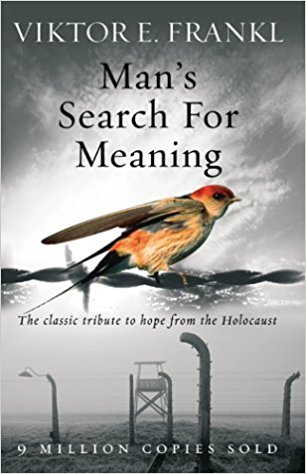Hero #052: Viktor Frankl … (04/12/16)
Viktor Frankl was an Austrian neurologist and psychiatrist, as well as a WWII Holocaust survivor. Frankl was also the founder of logotherapy, what many call the “Third Viennese School of Psychotherapy,” and what has proven to be the pinnacle of western psychological thought and practice. His best-selling book Man’s Search for Meaning (originally published in 1946 as Nevertheless, Say “Yes” to Life) chronicles his experiences as a concentration camp inmate, which led him to discover the importance of finding meaning in all forms of existence, especially the most uncomfortable, painful, or even brutal ones.
In 1942, Frankl was deported to the Nazi Theresienstadt Ghetto, where he at first worked as a general practitioner in a clinic. When his skills in psychiatry were noticed, he was assigned to a psychiatric care ward, and shortly thereafter organized a unit to help camp newcomers to overcome their shock and grief. In October of 1944, Frankl was transported to the Auschwitz concentration camp, where he was processed, and then was moved to Kaufering, where he spent five months working as a slave laborer. In March of 1945, he was moved to the so-called rest camp at Türkheim, where he worked as a physician until April of that year, when the camp was liberated by American soldiers.
After enduring the suffering in these camps, Frankl concluded from both personal witnessing and personal experience that even in the most absurd, painful, &/or dehumanized situation, life has potential meaning; that suffering can be made meaningful; and thereby that a deep-seated peace can result. This conclusion served as a basis for his logotherapy, which Frankl had briefly described before World War II, saying, “What is to give light must endure burning.” Frankl had rediscovered a Great Truth – namely, that people are primarily driven by a “striving to find meaning,” and that it is this sense of meaning that enables people to not only overcome painful experiences, but use them to empower the effectuation of a far greater good.
“For the first time in my life I saw the truth as it is set into song by so many poets, proclaimed as the final wisdom by so many thinkers. The truth – that love is the ultimate and the highest goal to which Man can aspire. Then I grasped the meaning of the greatest secret that human poetry and human thought and belief have to impart: The salvation of Man is through love and in love … For it is between stimulus and response there is a space. In that space is our power to choose our response. And in that response lies our growth and our freedom … Everyone has his own specific vocation or mission in life; everyone must carry out a concrete assignment that demands fulfillment. Therein he cannot be replaced, nor can his life be repeated, thus, everyone’s task is unique as his specific opportunity to implement it. For the meaning of life differs from man to man, from day to day and from hour to hour. What matters, therefore, is not the meaning of life in general but rather the specific meaning of a person’s life at a given moment – namely, the meaning that person chooses to give that moment … For in the end everything can be taken from a man or a woman but one thing: the last of human freedoms to choose one’s attitude in any given set of circumstances, to choose one’s own way … [This is indeed] the last of human freedoms – the ability to chose one’s attitude in a given set of circumstances … Ultimately, man should not ask what the meaning of his life is, but rather he must recognize that it is he who is asked.” ~ via Victor Frankl






 ;
;